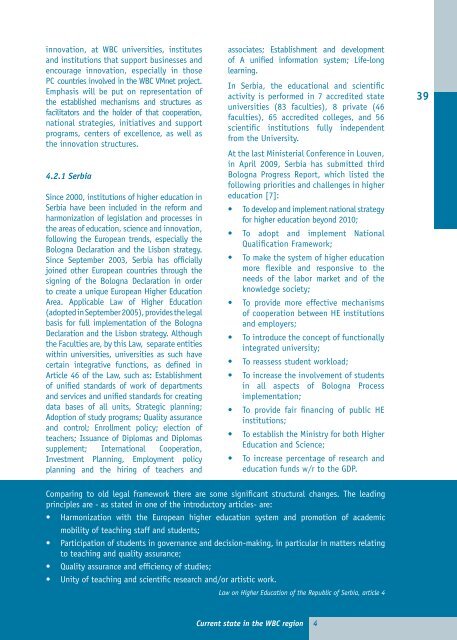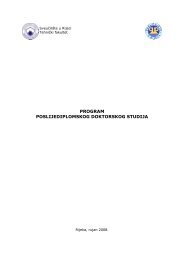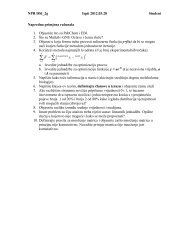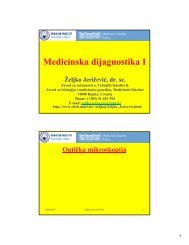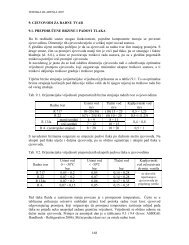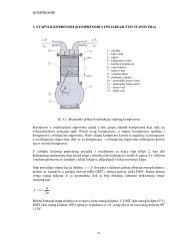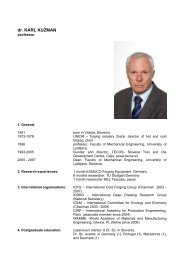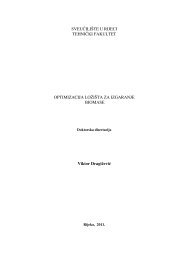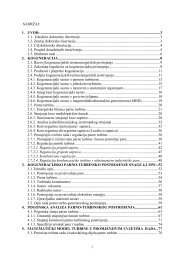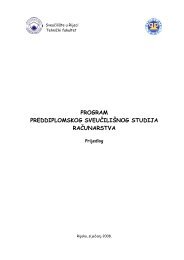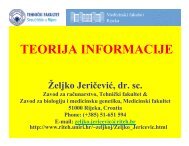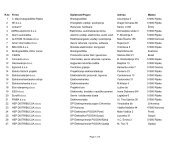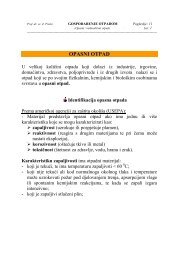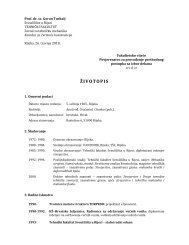universityâenterprise cooperation
universityâenterprise cooperation
universityâenterprise cooperation
Create successful ePaper yourself
Turn your PDF publications into a flip-book with our unique Google optimized e-Paper software.
innovation, at WBC universities, institutes<br />
and institutions that support businesses and<br />
encourage innovation, especially in those<br />
PC countries involved in the WBC VMnet project.<br />
Emphasis will be put on representation of<br />
the established mechanisms and structures as<br />
facilitators and the holder of that <strong>cooperation</strong>,<br />
national strategies, initiatives and support<br />
programs, centers of excellence, as well as<br />
the innovation structures.<br />
4.2.1 Serbia<br />
Since 2000, institutions of higher education in<br />
Serbia have been included in the reform and<br />
harmonization of legislation and processes in<br />
the areas of education, science and innovation,<br />
following the European trends, especially the<br />
Bologna Declaration and the Lisbon strategy.<br />
Since September 2003, Serbia has officially<br />
joined other European countries through the<br />
signing of the Bologna Declaration in order<br />
to create a unique European Higher Education<br />
Area. Applicable Law of Higher Education<br />
(adopted in September 2005), provides the legal<br />
basis for full implementation of the Bologna<br />
Declaration and the Lisbon strategy. Although<br />
the Faculties are, by this Law, separate entities<br />
within universities, universities as such have<br />
certain integrative functions, as defined in<br />
Article 46 of the Law, such as: Establishment<br />
of unified standards of work of departments<br />
and services and unified standards for creating<br />
data bases of all units, Strategic planning;<br />
Adoption of study programs; Quality assurance<br />
and control; Enrollment policy; election of<br />
teachers; Issuance of Diplomas and Diplomas<br />
supplement; International Cooperation,<br />
Investment Planning, Employment policy<br />
planning and the hiring of teachers and<br />
associates; Establishment and development<br />
of A unified information system; Life-long<br />
learning.<br />
In Serbia, the educational and scientific<br />
activity is performed in 7 accredited state<br />
universities (83 faculties), 8 private (46<br />
faculties), 65 accredited colleges, and 56<br />
scientific institutions fully independent<br />
from the University.<br />
At the last Ministerial Conference in Louven,<br />
in April 2009, Serbia has submitted third<br />
Bologna Progress Report, which listed the<br />
following priorities and challenges in higher<br />
education [7]:<br />
• To develop and implement national strategy<br />
for higher education beyond 2010;<br />
• To adopt and implement National<br />
Qualification Framework;<br />
• To make the system of higher education<br />
more flexible and responsive to the<br />
needs of the labor market and of the<br />
knowledge society;<br />
• To provide more effective mechanisms<br />
of <strong>cooperation</strong> between HE institutions<br />
and employers;<br />
• To introduce the concept of functionally<br />
integrated university;<br />
• To reassess student workload;<br />
• To increase the involvement of students<br />
in all aspects of Bologna Process<br />
implementation;<br />
• To provide fair financing of public HE<br />
institutions;<br />
• To establish the Ministry for both Higher<br />
Education and Science;<br />
• To increase percentage of research and<br />
education funds w/r to the GDP.<br />
39<br />
Comparing to old legal framework there are some significant structural changes. The leading<br />
principles are - as stated in one of the introductory articles- are:<br />
• Harmonization with the European higher education system and promotion of academic<br />
mobility of teaching staff and students;<br />
• Participation of students in governance and decision-making, in particular in matters relating<br />
to teaching and quality assurance;<br />
• Quality assurance and efficiency of studies;<br />
• Unity of teaching and scientific research and/or artistic work.<br />
Law on Higher Education of the Republic of Serbia, article 4<br />
Current state in the WBC region 4


